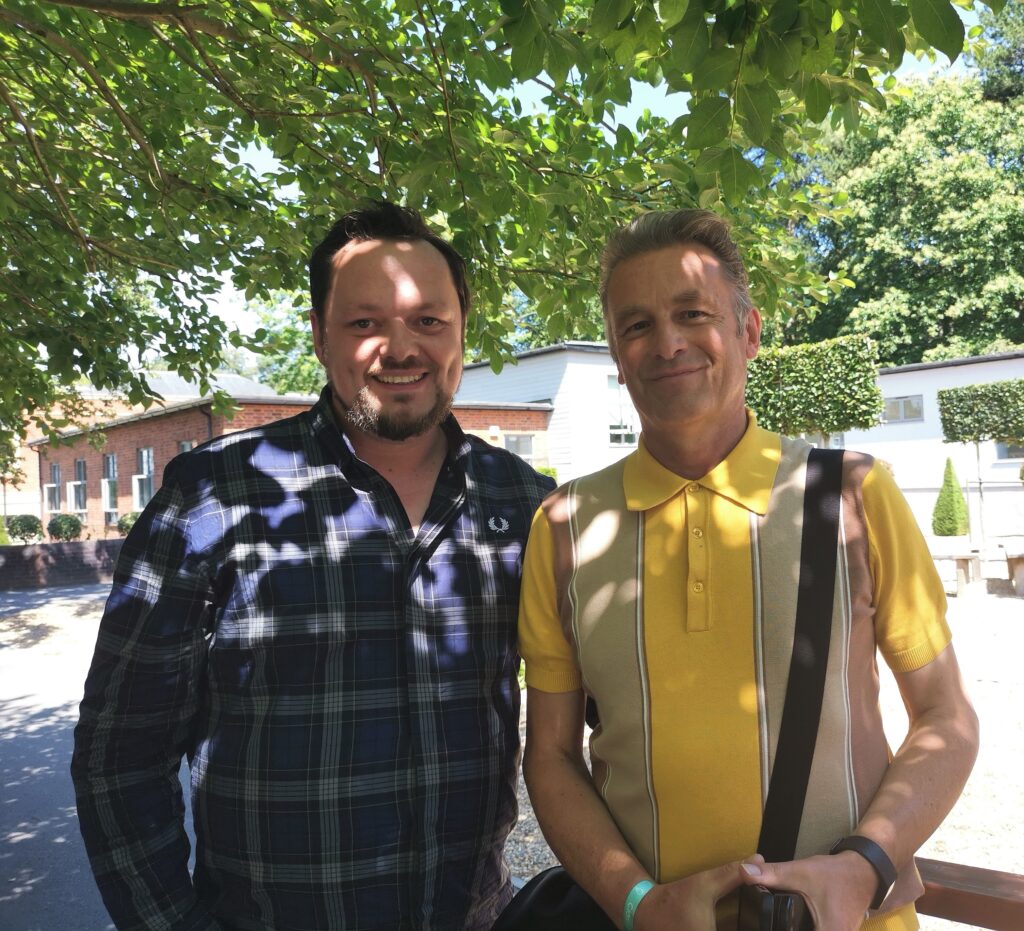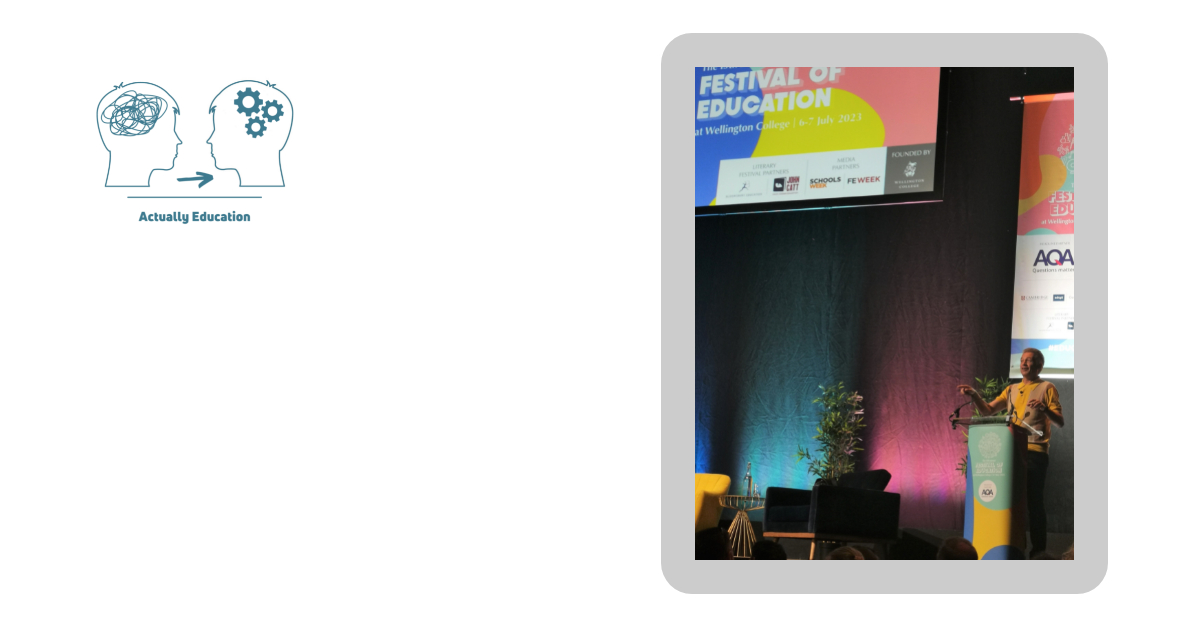Teaching our Autistic Minds – A speech by Chris Packham, 2023 Festival of Education
Actually Education’s Peter Davis was in attendance for the 13th edition of the “Festival of Education” at Wellington College in Crowthorne last week. The festival is one of the most significant educational events in the UK attended by thousands. Speakers for 2023 included actor and activist Eddie Izzard, author and journalist Will Self, educational professor Paul Kirschner and Ofsted Chief Inspector Amanda Spielman among many others.
Neurodiversity was firmly on the agenda this year with numerous sessions devoted to the topic from a wide range of individuals, companies and organisations. However, for Actually Education, one session really stood out for us; a keynote speech by the award winning TV presenter and conservationist Chris Packham.
Chris was born in the early 60’s and found growing up particularly difficult due to his own battle with neurodiversity. He has been diagnosed with Asperger syndrome, Autism and has had Ménière’s disease since his 30’s. Earlier this year, a BBC Two documentary named “Inside our Autistic Minds” was broadcast to critical acclaim and at the festival this keynote speech was similarly entitled “Teaching our Autistic Minds”.
The session was jam packed with people eager to hear the stories Chris had to share and in this post we summarise the session which contained a lot of valuable advice and, at times, emotional content from Chris Packham’s life and career so far.
“I’m just one autistic person”, is one of the first statements Chris makes. This comes from a quote by Dr. Stephen Shore of, “If you’ve met one individual with autism, you’ve met one individual with autism.” Packham is keen to stress that these are just his stories.
We go into early understanding of something being different and environments causing the most stress. For Packham personally, supermarkets and bookshops cause particular distress. In supermarkets, it’s the shapes, the colours not being organised how he would do it himself. The smells and how the section of tomatoes should smell of tomatoes not everything else, “the first few steps into a supermarket are always challenging”, he explains.
Bookshops provide a particular confusion, the way that he displays his books was not like a bookshop but in a way that the spines of the books are organised so that the patterns create comfort. Chris loves books but not book shops which seems particularly unfair.
It’s here where Packham stopped for a moment to talk about the importance of control for people with Autism. “I can’t control that this lady here [pointing at the front row] is in green next to this gentleman in lilac”, this lack of control could cause a problem. However, having some control is enough in itself. The control of the lectern and where his notes are placed symmetrically, where the clicker (despite the lack of presentation) is and so on is enough in terms of control to provide comfort.
Allowing autistic students that element of control is a key message coming across. As Packham explains his own school experience, “…the best place to sit is at the front of a class, I don’t have to worry about the visual mess of a room”. Something that his teachers were happy to eventually accommodate. School provided many challenges including bullying related to the way he behaved, “I don’t want to close my exercise book because a bell has gone off”, again the element of control being very important.
Chris Packham is obviously most famous for his involvement in nature and this also gave him comfort as a younger person, “If I was out in the woods I was normal, I was just me”, he explained. A lot of detail is provided here, the smell of bark in the woods and the noise rain makes on trees are all explained vividly for the audience.
Interestingly, it was in Rock and Heavy Metal music that a younger Packham found some calm. His favourite band is ‘The Jesus and Mary Chain’ and the lifestyle of looking differently and dressing differently has become an important part of his identity over the years as he points to his shoes. The rebellious nature of the genre filtered through to school life, “If there was no chance of winning, I wouldn’t do it”, he explained as there was a struggle during his school life related to why he should study subjects such as religion or French. Packham went into detail about not being able to commit to studying he could see no practical use in using for the rest of his life.
For the educators in the room though there was a simple message, “In learning and education, focus on capacities and strengths”, again also driving home the point of allowing children with Autism to have an element of control. Chris Packham took us into detail on his own struggles and the aspect of control being prominent through school to the present day and allowing other students to focus on their strengths.
Perhaps the biggest message though for our readers with Actually Education comes from an audience question on parenting children with Autism which is where we leave this summary…
“What does your child get out of education…[what you want for them] doesn’t mean that you want them to be an astronaut or something like that, it means that you want them to be confident and healthy mentally while they study.”

For Actually Education, all donations help us to conduct more sessions, more research, create helpful resources, articles and advice and a whole lot more! We are a registered Community Interest Company (CIC), our official registration can be found here. Donating is easy and can be done via Paypal using the button below, thanks for any donations that can be offered!
